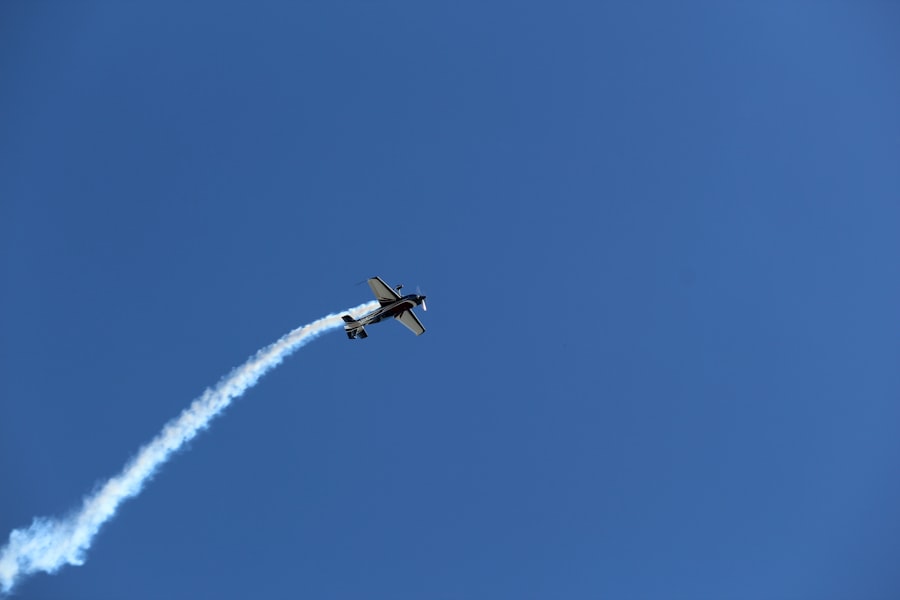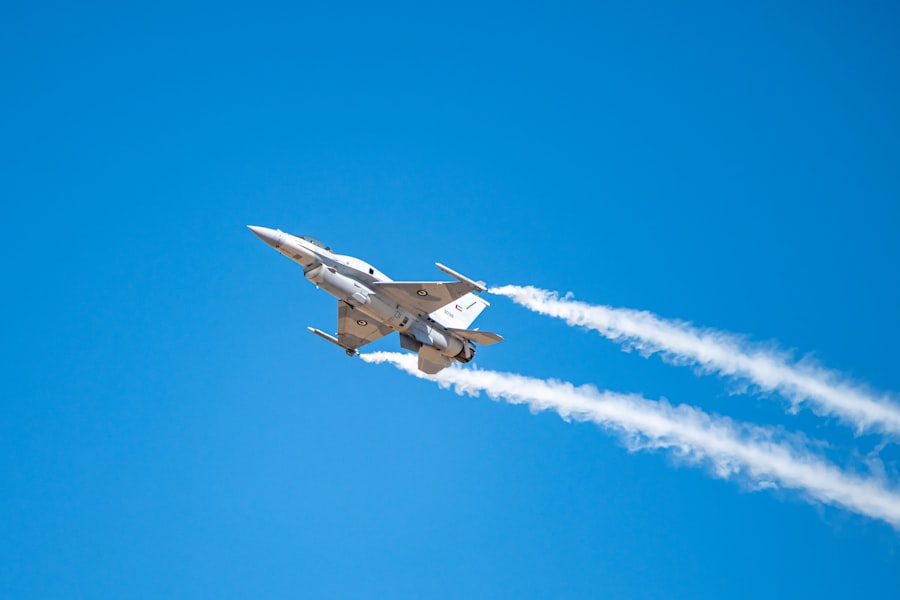Aeronautical engineering is a specialized branch of engineering that focuses on the design, development, testing, and production of aircraft and spacecraft. This field encompasses a wide range of disciplines, including aerodynamics, materials science, structural analysis, propulsion, and avionics. The roots of aeronautical engineering can be traced back to the early 20th century when pioneers like the Wright brothers laid the groundwork for powered flight.
Since then, the discipline has evolved significantly, driven by technological advancements and the increasing complexity of modern aircraft and spacecraft. The significance of aeronautical engineering extends beyond mere aircraft design; it plays a crucial role in ensuring safety, efficiency, and sustainability in aviation. As global air traffic continues to rise, the demand for innovative solutions to enhance performance and reduce environmental impact has never been greater.
Aeronautical engineers are at the forefront of this evolution, tasked with addressing challenges such as fuel efficiency, noise reduction, and the integration of unmanned aerial vehicles (UAVs) into national airspace systems. Their work not only shapes the future of aviation but also contributes to advancements in related fields such as defense, space exploration, and transportation.
Key Takeaways
- Aeronautical engineering is essential for designing and improving aircraft and aviation technology.
- Pursuing a degree in aeronautical engineering involves rigorous education in physics, mathematics, and engineering principles.
- Career opportunities for aeronautical engineers span aerospace companies, defense, research, and government agencies.
- Innovations in aeronautical engineering are driving advancements in fuel efficiency, safety, and sustainable aviation.
- Success in this field requires strong analytical skills, creativity, and the ability to solve complex technical challenges.
The Importance of Aeronautical Engineering in Aviation
Aeronautical engineering is fundamental to the aviation industry, which serves as a backbone for global connectivity and commerce. The design and development of aircraft are critical for ensuring that they meet stringent safety standards while also being efficient and cost-effective. Aeronautical engineers apply principles of physics and mathematics to create designs that optimize performance while minimizing risks.
For instance, the development of advanced materials such as carbon-fiber composites has allowed for lighter and stronger aircraft structures, leading to improved fuel efficiency and reduced operational costs. Moreover, aeronautical engineers are instrumental in enhancing the safety features of aircraft. They conduct rigorous testing and simulations to identify potential failure points and develop solutions to mitigate risks.
The implementation of advanced avionics systems, which include navigation, communication, and monitoring technologies, has significantly improved situational awareness for pilots and air traffic controllers alike. This integration of technology not only enhances safety but also streamlines operations within increasingly crowded airspace.
The Educational Journey: Pursuing an Aeronautical Engineering Degree

Embarking on a career in aeronautical engineering typically begins with obtaining a bachelor’s degree in aerospace or aeronautical engineering from an accredited institution. The curriculum is designed to provide students with a solid foundation in mathematics, physics, and engineering principles. Core subjects often include fluid dynamics, thermodynamics, structural mechanics, and control systems.
Hands-on experience is also emphasized through laboratory work and design projects that allow students to apply theoretical knowledge to real-world challenges. In addition to technical skills, aspiring aeronautical engineers are encouraged to develop strong problem-solving abilities and critical thinking skills. Many programs incorporate team-based projects that simulate industry conditions, fostering collaboration among students from diverse backgrounds.
Furthermore, internships or co-op programs are highly beneficial as they provide practical experience in the field and help students build professional networks. Graduate studies can further enhance career prospects, allowing individuals to specialize in areas such as propulsion systems, aerodynamics, or spacecraft design.
Career Opportunities for Aeronautical Engineers
| Career Opportunity | Industry | Average Salary | Job Growth (10 years) | Key Skills Required | Typical Employers |
|---|---|---|---|---|---|
| Aeronautical Design Engineer | Aerospace Manufacturing | 85,000 – 120,000 | 5% | CAD, Aerodynamics, Materials Science | Boeing, Airbus, Lockheed Martin |
| Flight Test Engineer | Aerospace Testing & Development | 80,000 – 110,000 | 6% | Data Analysis, Flight Mechanics, Safety Protocols | NASA, Military, Private Aerospace Firms |
| Propulsion Engineer | Engine Manufacturing | 90,000 – 130,000 | 7% | Thermodynamics, Fluid Mechanics, Engine Design | GE Aviation, Rolls-Royce, Pratt & Whitney |
| Systems Engineer | Defense & Aerospace Systems | 95,000 – 125,000 | 8% | Systems Integration, Project Management, Software | Raytheon, Northrop Grumman, BAE Systems |
| Research Scientist | Academic & Government Research | 70,000 – 100,000 | 4% | Research Methodology, Aerodynamics, Computational Modeling | Universities, NASA, Research Labs |
| Maintenance Engineer | Airlines & Maintenance | 65,000 – 90,000 | 5% | Mechanical Systems, Troubleshooting, Safety Standards | Delta, Emirates, Lufthansa |
| Avionics Engineer | Electronics & Aerospace | 85,000 – 115,000 | 6% | Electronics, Software, Systems Engineering | Honeywell, Garmin, Thales Group |
The career landscape for aeronautical engineers is diverse and dynamic, offering opportunities across various sectors including commercial aviation, defense, space exploration, and research institutions. Many aeronautical engineers find employment with major aerospace manufacturers such as Boeing or Airbus, where they contribute to the design and production of commercial aircraft. Others may work with government agencies like NASA or the Department of Defense, focusing on cutting-edge projects related to space exploration or military aviation.
In addition to traditional roles in design and manufacturing, aeronautical engineers are increasingly involved in emerging fields such as UAV technology and electric propulsion systems. The rise of drones has created a demand for engineers who can develop innovative solutions for applications ranging from delivery services to agricultural monitoring. Furthermore, as the aviation industry seeks to reduce its carbon footprint, aeronautical engineers are at the forefront of developing sustainable technologies that promote greener air travel.
The Future of Aeronautical Engineering: Innovations and Advancements
The future of aeronautical engineering is poised for remarkable advancements driven by technological innovation and a growing emphasis on sustainability. One of the most exciting developments is the exploration of electric and hybrid propulsion systems that aim to reduce greenhouse gas emissions associated with traditional jet fuel. Companies like Joby Aviation and Wright Electric are pioneering electric aircraft designs that could revolutionize short-haul travel by making it more environmentally friendly.
Additionally, advancements in artificial intelligence (AI) and machine learning are transforming how aeronautical engineers approach design and testing processes. AI algorithms can analyze vast amounts of data from simulations and real-world operations to optimize aircraft performance and predict maintenance needs. This shift towards data-driven decision-making not only enhances efficiency but also improves safety by enabling proactive measures based on predictive analytics.
Skills and Knowledge Required for Aeronautical Engineering

To excel in aeronautical engineering, individuals must possess a robust set of technical skills coupled with strong analytical capabilities. Proficiency in mathematics is essential, as engineers frequently apply calculus, differential equations, and linear algebra to solve complex problems related to flight dynamics and structural integrity. Additionally, a solid understanding of physics principles is crucial for analyzing forces acting on aircraft during flight.
Beyond technical expertise, effective communication skills are vital for collaborating with multidisciplinary teams and presenting ideas clearly to stakeholders. Aeronautical engineers often work alongside professionals from various fields such as computer science, materials science, and environmental science. Therefore, the ability to convey complex concepts in an understandable manner is essential for successful project outcomes.
Furthermore, adaptability is key in this rapidly evolving field; engineers must stay abreast of emerging technologies and industry trends to remain competitive.
Challenges and Rewards of Pursuing an Aeronautical Engineering Degree
Pursuing a degree in aeronautical engineering can be both challenging and rewarding. The rigorous curriculum demands a significant commitment to mastering complex concepts and applying them effectively in practical scenarios. Students often face intense coursework that requires critical thinking and problem-solving skills under pressure.
Balancing academic responsibilities with internships or extracurricular activities can be demanding but ultimately prepares students for the realities of the profession. Despite these challenges, the rewards of obtaining an aeronautical engineering degree are substantial. Graduates enter a field that not only offers competitive salaries but also provides opportunities to work on groundbreaking projects that shape the future of aviation.
The sense of accomplishment derived from contributing to innovations that enhance safety or reduce environmental impact can be immensely fulfilling. Moreover, the collaborative nature of the field fosters a sense of community among professionals who share a passion for advancing aerospace technology.
The Impact of Aeronautical Engineering on the World of Aviation
Aeronautical engineering stands as a cornerstone of modern aviation, driving advancements that enhance safety, efficiency, and sustainability in air travel. As the industry continues to evolve in response to global challenges such as climate change and increasing air traffic demands, the role of aeronautical engineers will only become more critical. Their expertise not only shapes the design and functionality of aircraft but also influences broader societal trends towards greener technologies and innovative transportation solutions.
The journey through aeronautical engineering education equips individuals with a unique skill set that prepares them for diverse career paths within this dynamic field. As they navigate challenges and embrace opportunities for innovation, aeronautical engineers will undoubtedly play a pivotal role in shaping the future of aviation for generations to come.




